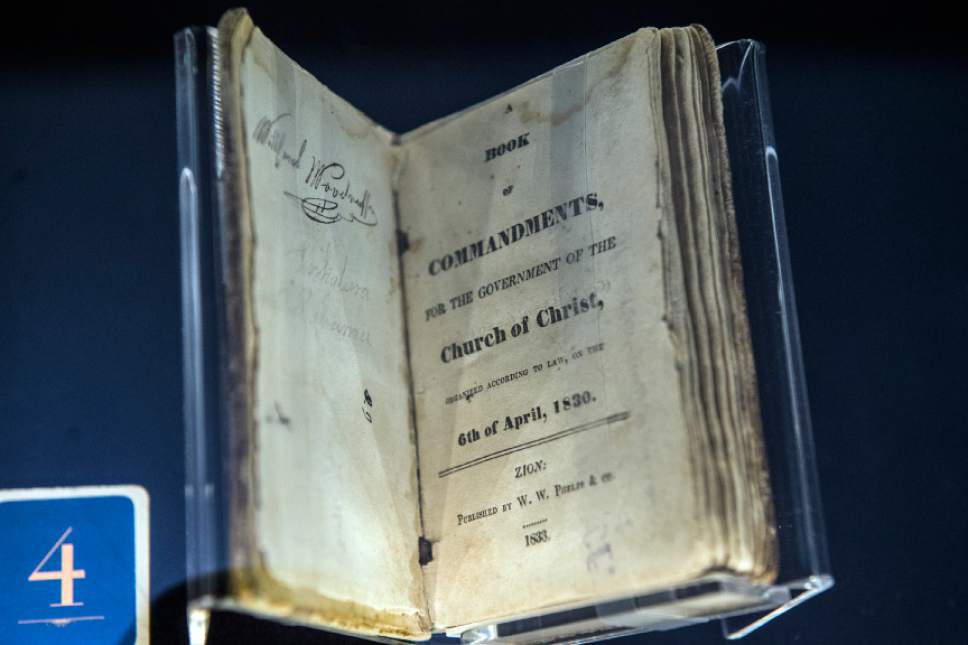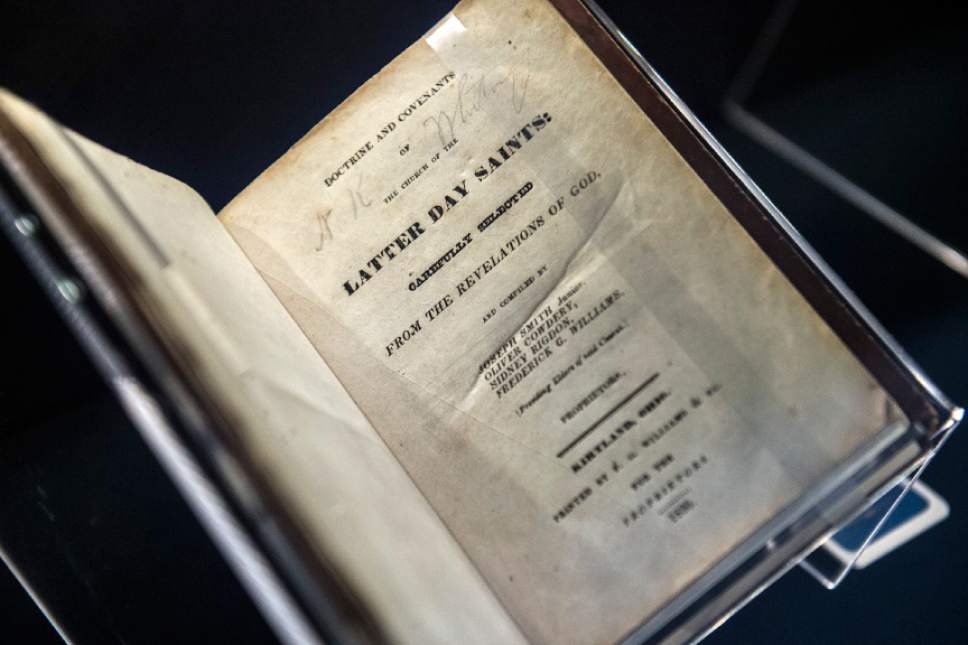This is an archived article that was published on sltrib.com in 2016, and information in the article may be outdated. It is provided only for personal research purposes and may not be reprinted.
Take heart, Mormon historians.
There are subtle signs that the LDS Church is helping members embrace new scholarship on the faith's history.
No, the groundbreaking "Gospel Topics" essays, dealing with some of the church's sometimes-thorny past, will not be included in the 2017 Sunday school curriculum on the Doctrine & Covenants, a compilation of what Mormons view as divine revelations given to founder Joseph Smith and other LDS leaders.
Nor will the printed lesson manual, first written in 1999 and revised in 2003, include background narratives known as "Revelations in Context: The Stories Behind the Sections of the Doctrine and Covenants." (They instead will be appended to the end of each lesson online.)
But hard copies of these narratives are already available in English, Spanish and Portuguese. And here's an important point: This separate edition of "Revelations" is published by The Church of Jesus Christ of Latter-day Saints, not the Church Historian's Press, the arm of the Utah-based faith that brought out the landmark Joseph Smith Papers Project volumes and "The First Fifty Years of Relief Society: Key Documents in Latter-day Saint Women's History."
Moreover, the print version of "Revelations" is the same size — six inches by nine inches — as many of the past manuals members have used, giving it an authorized feel.
It also is being sold in the church's Distribution Centers, which carry only church-approved books, magazines, movies and such.
Finally, the editors' names — Matthew McBride and James Goldberg — appear on the title page of "Revelations" and each of the 54 articles is attributed to individual writers, mostly male and female historians and researchers employed by the faith who cite references beyond church-owned resources.
Not since the 1960s — when LDS religious teacher Lowell Bennion penned his last Sunday school manual — has any institutional teaching text carried the name of a single author, notes Mormon historian Matthew Bowman, who wrote "The Mormon People: The Making of an American Faith."
The move to credit authors while distributing the materials through official channels "is encouraging," Bowman says. "It's a signal that professional history has received official sanction and ... that the academic is not the opposite of the spiritual."
Peggy Fletcher Stack





